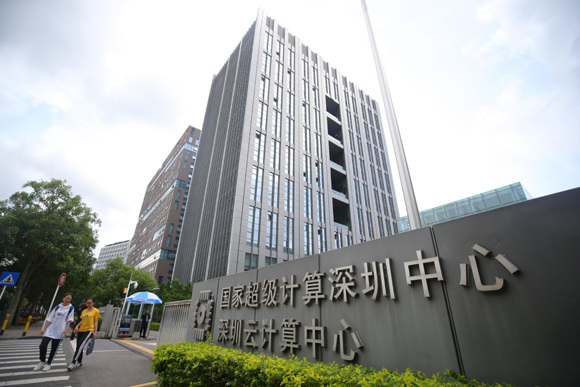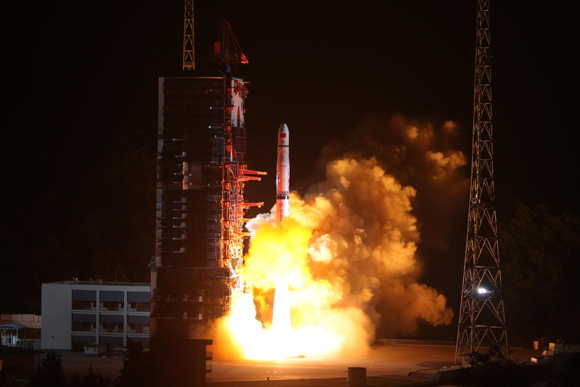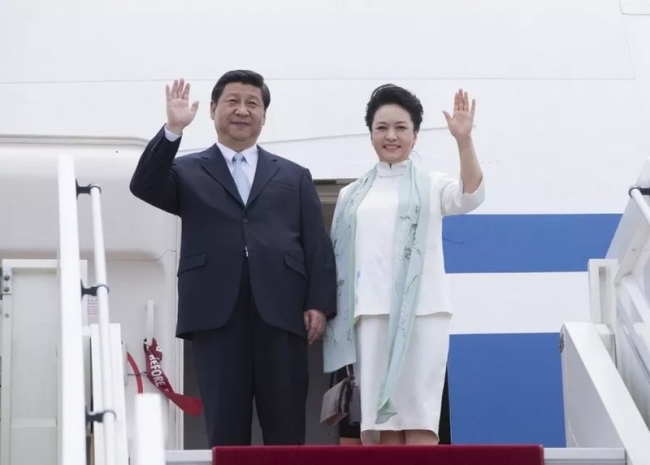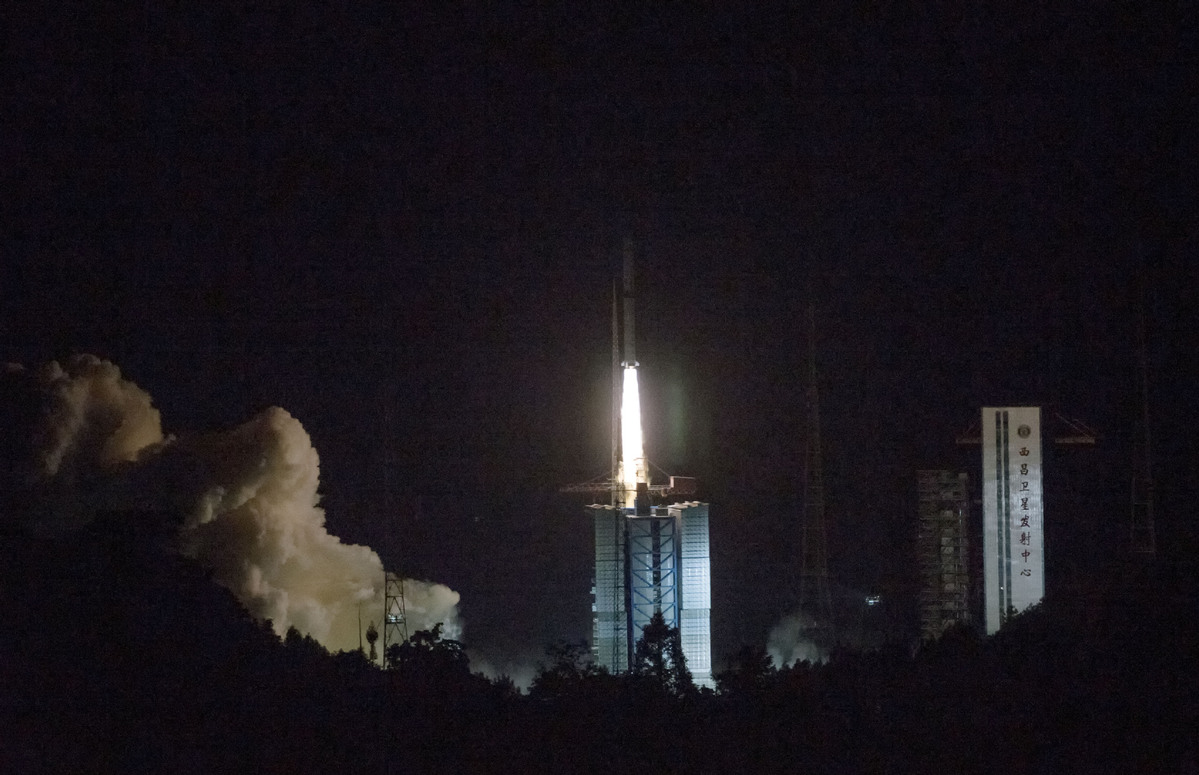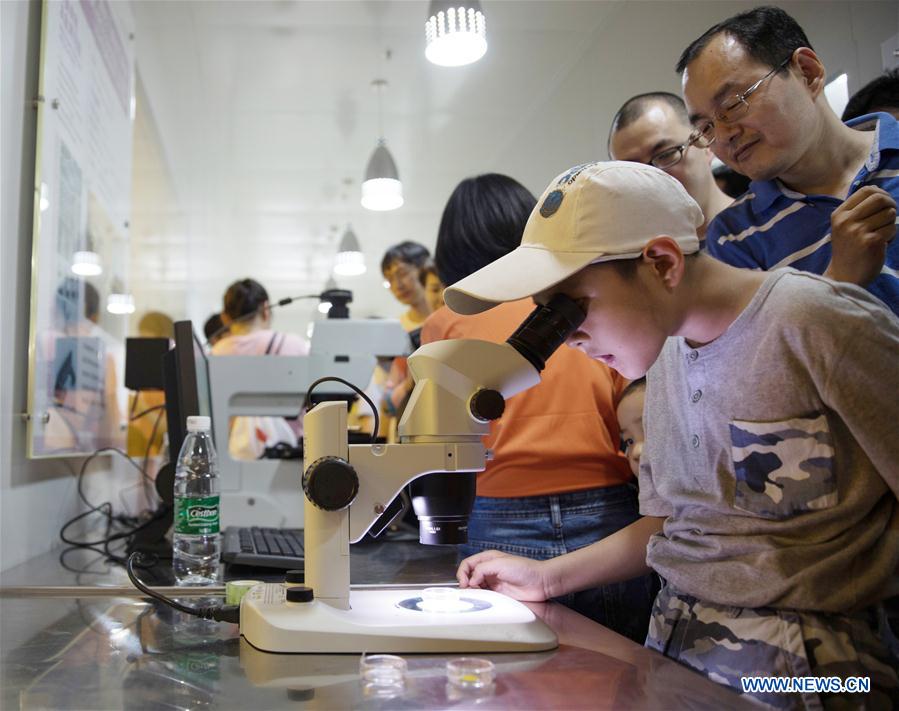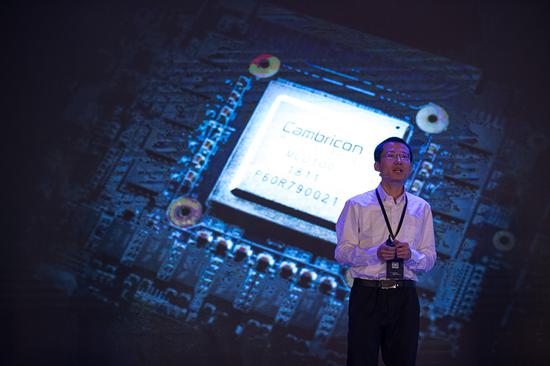
Chen Tianshi, CEO of Cambricon Technologies Corp Ltd, introduces the company's new chip products at a news conference in Shanghai on May 3. (Photo/Xinhua)
China is nurturing domestic tech companies to reduce reliance on foreign products
Artificial intelligence technologies are bursting out of laboratories and into reality at a faster rate than many expected.
Consumers can now take selfies with smartphones that automatically beautify their pictures-removing dark circles under the eyes and adding patches of rouge. After a hard day at work, people can talk to internet-connected TVs, which will switch on automatically and begin beaming their owners' favorite shows. When stepping into smart vehicles, people can ask cars to lower the temperature and recommend the nearest coffee shop, just by speaking.
All these applications are made possible by miniature processors that operate within the devices themselves or via cloud services. As the brains powering these smart electronic products, AI chips help smartphones, TVs and automobiles understand what humans say, recognize pictures, and more importantly, give appropriate feedback.
As part of its broad push to gain a lead in the AI era, China is nurturing globally competitive chip companies that can reduce the nation's reliance on foreign technologies.
Describing chips as being like the human heart, President Xi Jinping said in late April that "no matter how big a person is, he or she can never be strong without a sound and strong heart". He urged businesses to make major breakthroughs in chip technology and reach new heights in the global semiconductor industry.
A string of Chinese startups and tech heavyweights are scrambling to respond to President Xi's call.
At a much-anticipated event held in Shanghai in early May, Cambricon Technologies Corp Ltd, a startup that specializes in AI processors, unveiled China's first cloud AI chip-the MLU 100. The chip outperforms traditional general purpose processors and can better support AI-powered applications.
"The MLU 100 consumes less power, is compatible with various AI algorithms, and can better drive applications like visual, speech and natural language processing," said Chen Tianshi, CEO of Cambricon, which is affiliated with the Chinese Academy of Sciences and backed by Alibaba Group Holding Ltd.
Cambricon-which raised $100 million from investors last year-is part of a boom of Chinese companies and startups working on AI chips, hoping to take on United States semiconductor giants such as Nvidia Corp, Intel Corp and Qualcomm Inc.
The trend comes as China's semiconductor industry sees a unique opportunity to establish itself amid the current wave of enthusiasm for hardware optimized for AI, after the country lagged behind foreign rivals in traditional general processors for years, company executives and industry experts said.
Chinese companies are now benefiting from favorable government policies, a growing demand for tailor-made AI chips and the country's huge digital population, which lay a sound foundation for large-scale AI applications.
"Chips and software are closely bounded. That is particularly true in AI, as chips powering an application must be specifically designed. China's booming software market and large user base will allow homegrown companies to update chip design quickly based on user experience," said Roger Sheng, research director at consultancy Gartner Inc.
"More importantly, AI has just jumped out of laboratories and into commercial applications. China and the US are almost at the same starting line," Sheng added.











